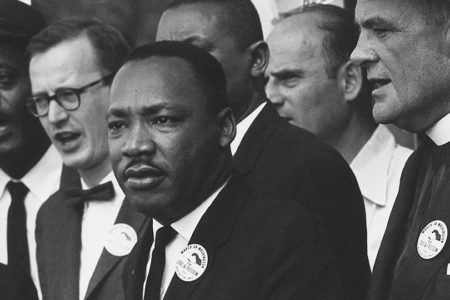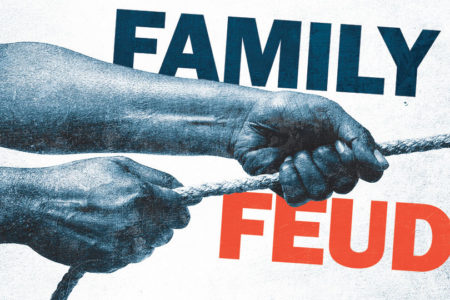From Bethel to Bethel
How God bestowed the Abrahamic Covenant on Jacob and his descendants forever.
Many people struggle through life. Every day brings them something new to worry about. Some have illnesses. Others have grief. The list of troubles that shape a person is endless. The patriarch Jacob knew all about trouble, yet his struggles became God’s instruments to transform him from a supplanter to a servant.
After working in Padan Aram for his father-in-law, Laban, for 20 years, Jacob knew it was time to go home: “Then the LORD said to Jacob, ‘Return to the land of your fathers and to your family, and I will be with you’” (Gen. 31:3). Returning to Canaan would not be easy because of the circumstances under which he had left. Jacob had stolen the blessing of the firstborn from his brother, Esau; and Esau wanted to kill him. Earlier, Esau had willingly given Jacob the birthright of the firstborn in exchange for a meal, showing how little he valued it. The brothers never communicated the entire time Jacob was gone, and Jacob was terrified of Esau.
Meanwhile, Laban and his sons also were angry with Jacob, believing he had become rich at their expense. As Jacob’s flocks increased, Laban’s decreased until God had shifted all of Laban’s wealth to Jacob. As Jacob prepared to take his two wives (Leah and Rachel), their children, and a multitude of livestock back to the Promised Land, he struggled tremendously. He knew he had cheated Esau and would have to face him. He couldn’t remain with Laban, yet he was afraid of his brother. He couldn’t go backward, and he was afraid to go forward. He had nowhere to go but to God.
Twenty years earlier, as he fled Canaan, he had a divine encounter with God. He had a dream, “and behold, a ladder was set up on the earth, and its top reached to heaven; and there the angels of God were ascending and descending on it” (28:12). As if that weren’t enough, “the LORD stood above it [the ladder]” (v. 13). There God bestowed on Jacob the everlasting Abrahamic Covenant—the promise He had made to Abraham and Isaac:
I am the LORD God of Abraham your father and the God of Isaac; the land on which you lie I will give to you and your descendants. Also your descendants shall be as the dust of the earth; you shall spread abroad to the west and the east, to the north and the south; and in you and in your seed all the families of the earth shall be blessed (vv. 13–14).
He also assured Jacob, “Behold, I am with you and will keep you wherever you go, and will bring you back to this land; for I will not leave you until I have done what I have spoken to you” (v. 15). Jacob “called the name of that place Bethel” (v. 19), meaning “house of God.”
Now, 20 years later, Jacob was returning with a large family and great wealth—a testimony to God’s faithfulness. He was on the road when he heard Esau was coming with 400 men (32:6). So he lifted his heart to God in earnest supplication.
O God of my father Abraham and God of my father Isaac, the LORD who said to me, “Return to your country and to your family, and I will deal well with you”: I am not worthy of the least of all the mercies and of all the truth which You have shown Your servant; for I crossed over this Jordan with my staff, and now I have become two companies. Deliver me, I pray, from the hand of my brother, from the hand of Esau; for I fear him, lest he come and attack me and the mother with the children. For You said, “I will surely treat you well, and make your descendants as the sand of the sea, which cannot be numbered for multitude” (vv. 9–12).
That night Jacob sent his entire family over the ford of Jabbok and remained alone. Then a “Man” wrestled with him until dawn (v. 24). “When He [the Man] saw that He did not prevail against him, He touched the socket of his hip; and the socket of Jacob’s hip was out of joint” (v. 25). Yet Jacob continued to wrestle. Jacob’s determination was so great he told the Man, “I will not let You go unless You bless me!” (v. 26). This is not the action of a weakling but, rather, of a man who recognized his hope lay only with the Lord: “And in his strength he [Jacob] struggled with God. Yes, he [Jacob] struggled with the Angel and prevailed” (Hos. 12:3–4).
“What is your name?” the Man asked (Gen. 32:27). When the patriarch replied, “Jacob,” it was an admission of how his life had been before this defining moment. It had been one of trickery, deceit, and living by his wits. His name meant “heel catcher,” “trickster,” or supplanter.”1 It seems that this desperate struggle with the Lord was changing Jacob and altering the direction of his life.
The supplanter was becoming Israel, which means “he fights or persists with God”2 or “prince with God.” As the King James Version states, “Thy name shall be called no more Jacob, but Israel; for as a prince hast thou power with God and with men, and hast prevailed” (v. 28).
Ultimately, Israel understood with whom he had been wrestling because he named the place Peniel: “For I have seen God face to face, and my life is preserved” (v. 30). The Man was the Angel of the Lord—a preincarnate appearance of Jesus.
As Jacob had changed, so had Esau. When Jacob crossed the Jabbok River, he met his brother, who also had become wealthy and harbored no resentment against him. God not only had protected His servant from his enemy, but He enabled both brothers to dwell in their lands in peace.
GREAT PEOPLE OF THE BIBLE
Watch the stories of Jacob and the other patriarchs’ faiths lived out in our Great People of the Bible DVD.
Later, God sent Jacob back to Bethel, where He had first appeared to him more than 20 years earlier and had conferred the Abrahamic Covenant on him (35:1). When Jacob arrived, God appeared to him again. He reconfirmed his name was Israel and reconfirmed His covenant: “I am God Almighty. Be fruitful and multiply; a nation and a company of nations shall proceed from you….The land which I gave Abraham and Isaac I give to you; and to your descendants after you I give this land” (35:11–12). From here the promise would go to the entire house of Israel, and it resides with them to this day.
Five times in Scripture God refers to Israel as “Jacob my servant.” The final reference is in Ezekiel. It speaks of the days after the terrible “time of Jacob’s trouble” (Jer. 30:7), when God will regather the remnant that is left and bring them home: “Then they shall dwell in the land that I have given to Jacob My servant, where your fathers dwelt; and they shall dwell there, they, their children, and their children’s children, forever” (Ezek. 37:25).
Neither time nor trouble diminishes God’s faithfulness. He uses them both to shape lives and nations and, ultimately, to bring glory to Himself.
ENDNOTES
- Dr. Charles Ryrie, The Ryrie Study Bible NKJV (Chicago, IL: Moody Press, 1985), 46 n Gen. 25:26.
- Ibid., 60 n Gen. 32:25–28.








